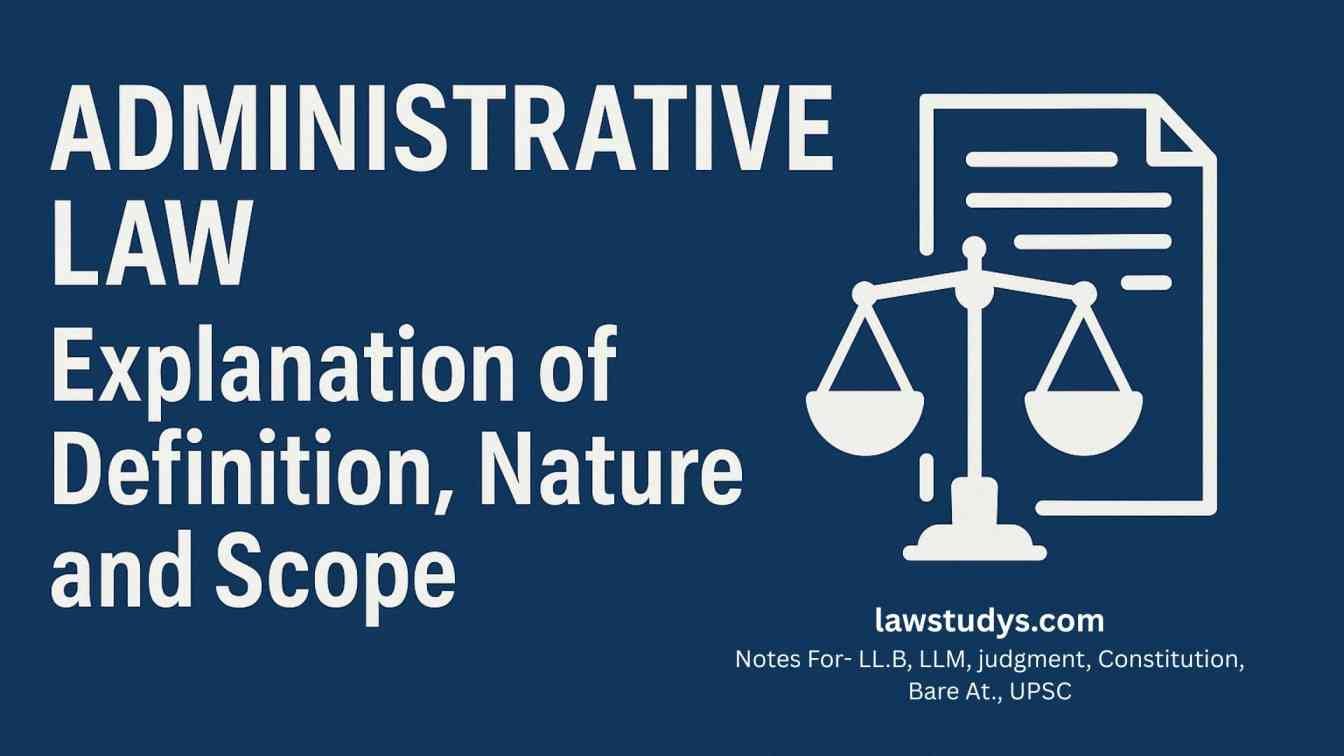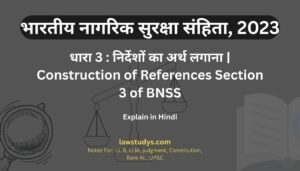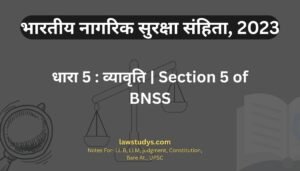This article explains what is administrative law, its definition, nature and scope under administrative law. If you are a lawyer, law student or preparing for judicial competitive examination, then it is very important for you to know about administrative law.
Administrative Law
Ever since the emergence of welfare states, the functions of the states have increased a lot. The states have taken all the works related to the general public and public welfare in their hands. The result was that the administration became very powerful and the possibilities of it becoming autocratic became strong.
Administrative law emerged to eliminate these possibilities. It determines the organization, powers, functions, rights and responsibilities of various organs of the administration, that is why it is called a branch of public law.
Definition of Administrative Law
Various jurists and jurists have given various definitions of administrative law in their own way. In fact, since this law is developed through judicial decisions, no universal definition has been given till date.
According to Jennings – Administrative law is a law related to administration. It determines the organization, powers and duties of administrative authorities. (The Law and the constitution) This definition of Jennings represents the viewpoint of England and has been accepted by many scholars.
Also know – What do you understand by juvenile delinquency? Its causes and treatment
According to Davis – Administrative law is a law that deals with the powers and procedures of administrative agencies. Administrative agency is a part of the government which is different from the court and the legislature and which affects the rights of individuals through adjudication or rule making powers.
Administrative law includes constitutional law, common law and law made by agencies. Most of it has developed in the process of interpretation of the constitution and statutes by the courts. (Handbook of Administrative Law) This definition of Davis represents the American viewpoint.
According to Dicey – Administrative law is that part of the law of any state which describes the legal status and responsibilities of all the authorities of the state, the rights and responsibilities of common people towards the state officials and the administrative process by which those rights and responsibilities are implemented. (Law of the constitution).
According to Professor Hart – Administrative law includes the law made by the administrative authorities and the method of controlling those authorities.
In the words of Professor Wade – This law is related to the functions and control of administrative officials and gives more emphasis on their functions than their organization. (Administrative Law).
It is clear from all the above definitions that administrative law is such a branch of public law which is related to the organization, powers, functions, rights and responsibilities of various organs of the government. It controls the illegal and improper actions of the administration. In essence, it can be said that this law discusses the rights and organization of various organs of the administration.
Also know – What is the Schools of Criminology And how many Types are there? – Criminology
Nature of Administrative Law
The definitions of administrative law make its nature clear. It is reflected from the definitions that –
(i) Administrative law is the law related to the control of the powers of the government and administration,
(ii) It is the law that ensures the organization of the government and administration, their rights, powers, functions and responsibilities,
(iii) It is the law made by the courts, and
(iv) It is such a law that controls administrative functions. Its aim is to establish harmony between the rule of law and administrative discretion.
Due to its nature, it is called the science of the power of administrative authorities. Which can be studied under three headings –
(a) Relations,
(b) Judicial,
(c) Executive.
Explaining the nature of administrative law, Professor Davis has said that administrative law is related to administrative powers, processes and the method of judicial review. It does not refer to all those substantial laws which are adopted by administrative agencies.
Administrative law has been limited to those functions of the authorities which are related to their law making or judicial decision making powers. It also includes judicial review of executive or administrative functions.
Professor Freund’s views are also worth citing in the context of nature. According to Freund, “The main problems of administrative law are related to all those laws which are related to the quality of the officer, his work, procedural expectations for the proper use of his powers, proper relief for judicial control over administrative functions and questions of jurisdiction and implementation of administrative power.”
It is worth mentioning here that the prescribed rights of a person cannot be taken away by administrative orders. (Administrative order cannot take away vested rights.) (Union of India vs. Asian Food Industries, AIR 2007 SC 250)
Thus, administrative law deals with the nature of the powers of the administration and the method of exercising these powers.
Also know – Kautilyas Arthashastra : Essay on Contribution to the Ancient Judicial System of India
According to Professor Griffith, administrative law examines –
(i) what powers are exercised by the administration,
(ii) what procedure is followed by the administration in exercising these powers,
(iii) what are the limitations of the powers of the administration, and
(iv) what remedies are available against the illegal and improper actions of the administration.
According to the nature of administrative law, its objective is –
(a) To prevent the use of administrative powers from going against public interest,
(b) To prevent the misuse of administrative powers and to ensure their use in accordance with the rule of law,
(c) To get administrative disputes settled by Administrative Tribunals,
(d) To provide protection to the rights and interests of citizens,
(e) To make administrative officers accountable to the public,
(f) To provide proper remedies to citizens, etc.
The Supreme Court has also said in the case of ‘Chairman and Managing Director, United Commercial Bank vs. P.C. Kakar’ (AIR 2003 SC 1571) that the powers of judicial review can be used by administrative tribunals to remove the shortcomings of the policy making process of administrative officers.
‘A. Shanmugam vs. A.K.R. In the case of V.M.N.P. Sangam (AIR 2012) SC 2010, it has been held by the Supreme Court that – The main objective of administrative and judicial proceedings is to discover the truth and do justice to the parties. (Object of administrative and judicial proceedings is to discern truth and do justice.)
It is worth mentioning here that administrative decisions are presumed to be fair. The court does not interfere in these unless they are malafide or irrelevant. (All Assam Modern Chakki Mill Association vs State of Assam, AIR 2017, NOC 589 Guwahati)
Scope of Administrative Law
Professor Wade’s views on the scope of administrative law are worth quoting here. According to him, “The organization of public authorities, their working style, their administrative and judicial rights and the judicial control of those officers is the scope of administrative law in England.”
The same thing applies to India in relation to the scope of administrative law. In India, in the context of the increasing powers of administrative officers, it is necessary to control them so that they do not become autocratic i.e. dictators. This is the reason why administrative work has been kept under judicial control.
The following things are included in the field of administrative law –
(i) It studies various administrative bodies, such as Central Revenue Board, Tariff Commission, Inquiry Commission, Advisory Board, Wage Board, etc.
(ii) It also studies the judicial functions of administrative agencies, such as Industrial Tribunal, Income Tax Revision Tribunal, etc.
(iii) Law making capacity of administrative agencies, delegation of powers, providing remedies through judicial control in case of misuse of powers, etc.
(iv) Study of various types of writs issued in case of misuse of administrative powers, such as habeas corpus, mandamus, prohibition, certiorari, quo warranto, etc.
(v) Guarantee to ensure compliance with the principles of natural justice.
(vi) Contractual and tort related liability of Central and State Governments by their authorities,
(vii) Public Corporation etc.
Important Articles
Doctrine of res gestae | Facts forming part of the same transaction | Sec. 6 Evidence
Note – If there is a need for amendment in the post, please share it and subscribe to the blog.
Reference – Book Administrative Law (Dr. Ganga Sahay Sharma)





